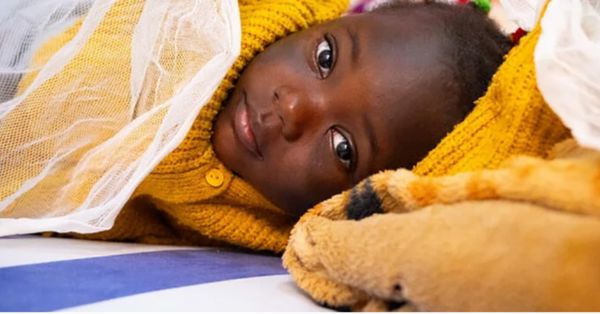World Malaria Day: Why the World Must Act Now Before It’s Too Late
The Fragile Fight Against a Silent Killer

Malaria’s Deadly Comeback: Why the World Must Act Now Before It’s Too Late –Imagine a disease so relentless that it kills a child every minute. A disease that has haunted humanity for centuries, slipping through the cracks of progress whenever we let our guard down. Malaria, the ancient scourge we once believed we could conquer, is staging a deadly resurgence—and the world is at risk of losing decades of hard-fought gains.
On World Malaria Day 2025, the World Health Organization (WHO) issued a stark warning: global efforts are faltering, and without urgent action, millions more could die. While we’ve saved 13 million lives since 2000, the battle is far from over. Climate change, drug resistance, and funding cuts are fueling a perfect storm, threatening to reverse progress.
But there’s hope. New vaccines, next-generation mosquito nets, and bold political commitments are turning the tide in some regions. The question is: Will the world step up before it’s too late?
Read: Vaccine Hesitancy: How to Fight Misinformation with Compassion and Facts
Progress Under Threat: The Shocking Reality of Malaria Today
For years, the fight against malaria was a global success story. Between 2000 and 2025, coordinated efforts prevented 2 billion cases and slashed deaths by millions. 45 countries have been certified malaria-free, and 25 more reported fewer than 10 cases in 2023.
But beneath these victories lies a fragile reality.
-
600,000 people still died from malaria in 2023 alone.
-
95% of these deaths were in Africa, where children under five bear the brunt.
-
Drug-resistant malaria strains are spreading.
-
Insecticide-resistant mosquitoes are evolving faster than we can develop new defenses.
-
Climate change is expanding malaria’s reach, with rising temperatures creating new breeding grounds.
Dr. Tedros Adhanom Ghebreyesus, WHO Director-General, put it bluntly:
“When we take our eyes off malaria, it comes roaring back. We’ve seen it before—political will fades, funding dries up, and suddenly, clinics run out of tests, drugs, and nets. The most vulnerable pay the price.”
The stakes couldn’t be higher.
The Lifesaving Breakthroughs Keeping Hope Alive
Despite the challenges, science and innovation are delivering game-changing tools:
1. The Malaria Vaccine Revolution
In a historic milestone, Mali just became the 20th African country to introduce malaria vaccines. These shots, once a distant dream, are now saving tens of thousands of children every year.
-
RTS,S (Mosquirix), the first-ever malaria vaccine, has already reached millions in Ghana, Kenya, and Malawi.
-
R21, a newer, more cost-effective vaccine, is scaling up fast.
-
By 2030, experts predict malaria vaccines could prevent 4 million cases annually.
2. Next-Gen Mosquito Nets
Old-school bed nets treated with pyrethroid insecticides are losing their punch. But new dual-chemical nets are changing the game:
-
In 2023, 80% of nets shipped to Africa were next-gen, up from 59% in 2022.
-
These nets last longer, kill resistant mosquitoes, and reduce cases by up to 50% in some regions.
3. The Fight Against Drug Resistance
For years, artemisinin-based drugs were the gold standard. But resistance is creeping in. The solution?
-
New antimalarial compounds in development.
-
Faster, cheaper rapid tests to detect resistant strains.
-
AI-powered tracking to predict outbreaks before they explode.
Yet, none of this matters if funding dries up.
Funding Cuts: The Invisible Hand Behind Malaria’s Resurgence
Here’s the brutal truth: Malaria programs are running on empty.
-
More than half of malaria-endemic countries report moderate to severe disruptions in services.
-
The 2025 Global Fund cuts could leave millions without treatment.
-
Climate disasters and wars are diverting resources away from malaria.
Dr. Daniel Ngamije, WHO’s Malaria Director, warns:
“We’re at a tipping point. If wealthy nations slash aid, if African leaders don’t boost domestic spending, we will see catastrophic backsliding.”
The Path Forward: Reinvest, Reimagine, Reignite
This year’s World Malaria Day theme—“Malaria ends with us: Reinvest, Reimagine, Reignite”—is a call to arms. Here’s what must happen:
1. Reinvest: Money = Lives
-
African governments must increase health budgets. (Only 4 out of 54 countries meet the Abuja Declaration’s 15% health spending target.)
-
Donor nations must fill the $3 billion annual funding gap.
-
The Global Fund and Gavi must be fully replenished.
2. Reimagine: Smarter, Faster Solutions
-
Drones delivering blood samples to remote labs.
-
Gene-edited mosquitoes to crash populations.
-
Mobile apps training community health workers in real-time.
3. Reignite: A Global Movement
-
Celebrities, CEOs, and grassroots activists must demand action.
-
Citizens must hold leaders accountable.
-
Every person can help—whether donating $10 for a net or pressuring politicians.
The Choice Is Ours
Malaria is not an unbeatable foe. We’ve proven it can be crushed. But victories in global health are never permanent. They demand constant vigilance, relentless investment, and unshakable political will.
The question isn’t “Can we end malaria?” It’s “Will we?”
The clock is ticking. What side of history will we choose to be on?
What You Can Do Right Now:
✅ Donate to malaria nonprofits (Against Malaria Foundation, Malaria No More).
✅ Tweet at world leaders demanding #FundTheFight.
✅ Share this article—awareness fuels action.
Because malaria ends with us—or it doesn’t end at all.






